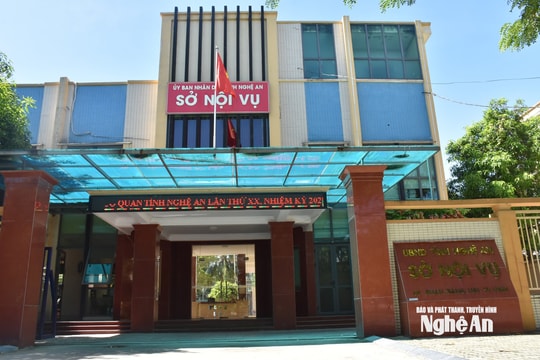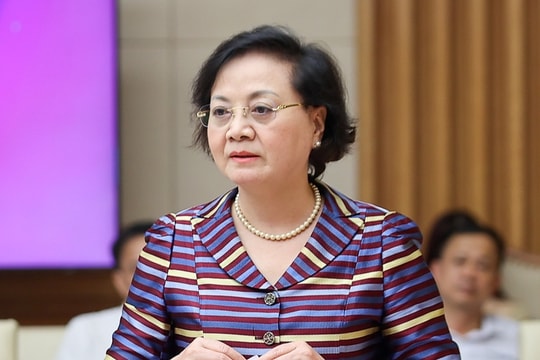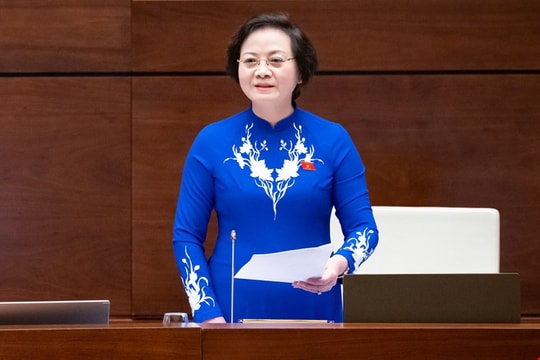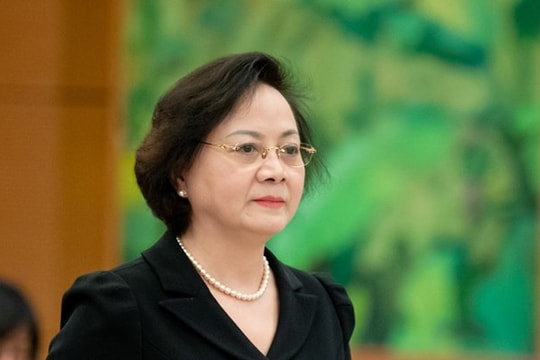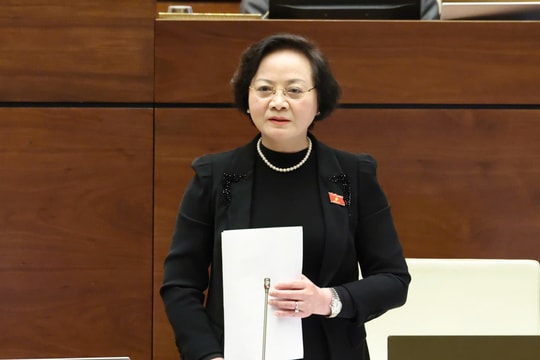Minister of Home Affairs Pham Thi Thanh Tra: Civil servants must be more responsive to build a good civil service.
Emphasizing the urgency of innovation and improving the quality and efficiency of public service, Minister of Home Affairs Pham Thi Thanh Tra said that civil servants must change, become more responsive and creative.
Speaking at the opening ceremony of the Good Governance Forum (within the framework of the 21st ASEAN Conference on Public Service Issues) held on the morning of August 4, Minister of Home Affairs Pham Thi Thanh Tra emphasized that recent changes and huge and unpredictable challenges have forced the civil service of ASEAN countries, more than ever, to look back at themselves.
“We must urgently innovate and improve service quality and efficiency to truly create a public service that is people-oriented and people-centered,” said the Vietnamese Minister of Home Affairs.
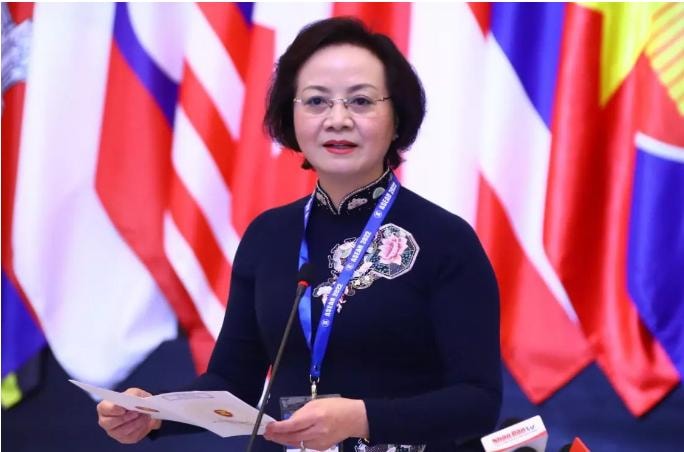 |
Minister of Home Affairs Pham Thi Thanh Tra. Photo: VNA |
According to Minister Pham Thi Thanh Tra, this requires civil servants to also change, be more flexible, more responsive, more creative, and learn more.
Therefore, Vietnam chose the theme of the Forum as "Innovation in training and fostering civil servants, improving capacity to meet the requirements of the new situation".
With the information and experiences shared at the forum, the Minister of Home Affairs hopes that ASEAN civil services will not only learn from successful lessons, but also from the difficulties in implementing and carrying out policies to improve the quality of human resources in the civil service.
The Forum is an opportunity for delegates to listen, share, and learn with the aim of narrowing the gap and encouraging cooperation among ASEAN countries, ASEAN+3 countries, and partner countries to ensure the adoption of effective governance principles.
“I hope that all of you will enthusiastically and actively exchange and discuss on the basis of sincerity, trust and responsibility to build a modern and adaptive ASEAN civil service,” the Minister of Home Affairs expressed.
39,000 cadres, civil servants and public employees were trained and educated abroad.
Director of the Department of Administrative Reform - Ministry of Home Affairs Pham Minh Hung said that Vietnam has gone through 3 stages of implementing comprehensive programs of State administrative reform towards a democratic, professional, modern civil service serving the people.
During that process, the building and improvement of the capacity of cadres, civil servants and public employees is always considered important, specifically demonstrated through the goals and key contents of the program in each stage.
In the 2021 - 2030 period, Vietnam continues to determine to build a team of professional, capable and qualified cadres, civil servants and public employees to meet the requirements of tasks and the country's development.
In particular, it defines specific goals and tasks such as building a professional, responsible, dynamic and talented civil service. Implementing a healthy, democratic, open and transparent competitive mechanism in appointing and promoting officials and recruiting civil servants and public employees to attract truly virtuous and talented people to work in the State.
Vietnam has set a target that by 2030, 50-60% of leaders and managers at the department, division, bureau, general department level and equivalent at the central level; 25-35% of leaders and managers at the department, branch, district People's Committee level and equivalent; over 30% of leaders and managers at the department level under the department, branch, district People's Committee level and equivalent; 80% of leaders and managers of state-owned enterprises will be capable of working in an international environment.
100% of commune-level cadres, civil servants and public employees have college or university degrees and are standardized in political theory, expertise, professionalism and working skills.
To achieve these goals, training and development is considered an important and decisive solution.
Mr. Hung said that before 2021, Vietnam will implement training forms such as: Apprenticeship, training according to civil servant rank standards, professional title standards for public employees; training before appointment to leadership and management positions; training according to job positions...
From 2021 to present, Vietnam has trained according to civil servant rank standards, professional title standards for public employees; trained according to leadership and management titles...
As of 2021, 90% of cadres and civil servants met the prescribed standards. On average, over 90% of commune-level cadres and civil servants nationwide have intermediate qualifications or higher.
Besides, Vietnam regularly organizes study, research and experience exchange delegations abroad, especially in highly developed countries.
During the period 2016 - 2020, the whole country sent more than 39,000 cadres, civil servants and public employees for training and development abroad. Of these, about 17,500 civil servants were leaders and managers, accounting for 45%; more than 7,400 civil servants were consultants and policy makers, accounting for 19%; and about 6,000 were lecturers, accounting for 16%.
Regarding tasks and solutions in the coming time, Mr. Hung said that Vietnam continues to improve institutions and policies on training and fostering. In particular, recently, the Ministry of Home Affairs has advised the Government to cut hundreds of training certificates for cadres, civil servants and public employees. This helps reduce the burden of certificates for cadres, civil servants and public employees, aiming to reduce overlap in training and fostering this team. This is an important content in improving institutions.
Along with that is the innovation of training and fostering content and programs; focusing on training and fostering according to titles, linked to practice and management; enhancing information technology and scientific and technological advances in training and fostering activities, etc.
At the same time, Vietnam will strengthen international cooperation in training and fostering cadres, civil servants and public employees. In particular, it will regularly exchange and share training and fostering experiences with ASEAN countries and countries with advanced civil service systems in the world.

